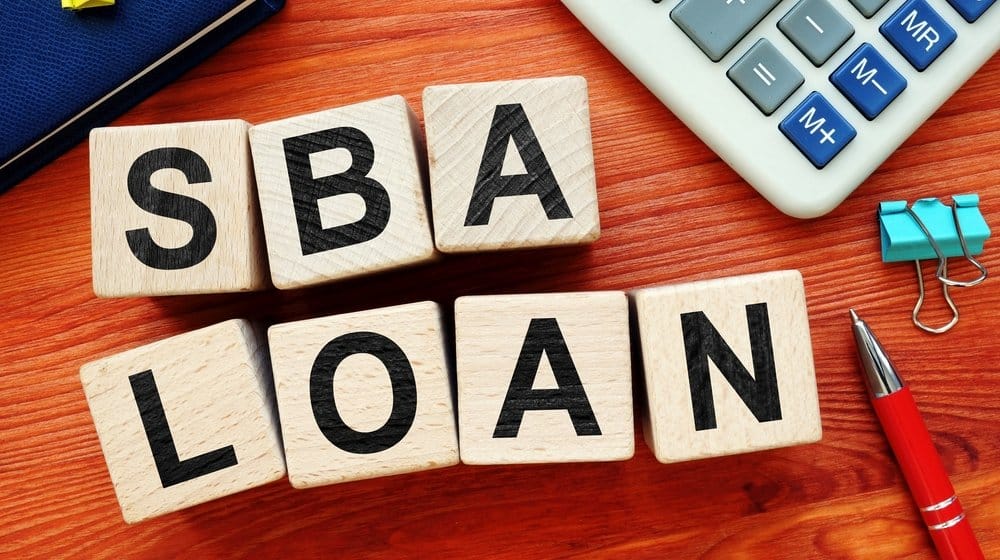Many people in the United States find it both thrilling and overwhelming to shop for a new car. Everyone has a unique experience when buying a car, whether it’s their first or they’re trading up. A car purchase can take months or a single day, depending on your needs and priorities. We’ve outlined the steps to buy a car from a private seller, at auction, with no credit, or used.
Guide on How to buy a car as a beginner?
There are several factors to consider if you want to buy a car with no credit from a private seller, a used car dealer, or at an auction. Here are some guidelines to assist you in making your decision.
#1. Why Do You Need a Car?
When shopping for a car, it’s helpful to have a clear idea of its intended use. Do you need to buy a compact car to get you from point A to point B for short trips, or would you rather have something roomier and more comfortable for longer trips? Perhaps you have your sights set on a UTE or SUV. Who else will be using it besides you and your loved ones? Do you want a lot of room for your stuff? Concerning fuel efficiency, what is the situation like? It’s wise to ask yourself these and similar inquiries before setting out on your search. RACT, Tasmania’s driving association, advises first-time automobile buyers to take their time because their “dream car” may not be practical.
#2. What Are Your Financial Limitations?
Do you have a car to trade in, or do you want to buy a new or used car from a private seller? Whether you’re thinking of selling your car privately or trading it in, RedBook can give you an idea of how much it’s worth. One’s bargaining power is strengthened by having the cash on hand up front. There are a few possibilities if you want to trade in a car but still have payments due on the financing, but you should probably contact the finance company first.
It’s wise to compare auto loan rates and terms from many lenders. Don’t settle for a dealer’s advertised price. For a ballpark figure on how much money you could borrow, it could be a good idea to talk to different loan companies. Your credit score is something you should look into as well. If you have a low credit score and are interested in a personal or auto loan from a lender who offers a range of interest rates, you may want to consider waiting until your credit improves or putting aside money until then.
Once you’ve located a car loan that meets your needs, get pre-approved for it so you can negotiate with confidence. Keep in mind that if you’re buying a car from a dealer or out of state, you may have to pay additional fees and charges, such as stamp duty, registration, insurance, and delivery.
# 3. Investigate the Matter Thoroughly
Once you have a good idea of your budget and the features you’d like in a car, you should perform extensive research on multiple brands. Don’t settle for the first car you see; instead, browse the options and see what strikes your fancy. You should check out what other people have to say about a vehicle by reading their comments and reviews online.
#4. Test-Drive Number
You should be able to take the vehicle for a test drive before making a purchase, regardless of whether you’re buying from a dealer or a private seller. Test the vehicle’s performance on a variety of roads and at varying speeds. You won’t believe how simple it is to park a car.
You’ll be spending a lot of time in the driver’s seat, so it’s important to find a vehicle that meets your needs in terms of comfort, visibility of the dashboard, and accessibility of controls. Is there any concern about exposure? Do you have unobstructed views out of both the front and back windows, as well as the side mirrors?
#5. Automobiles, either New or Used
The value of a brand-new vehicle drops rapidly in the first year after purchase. If a brand-new vehicle is what you’re looking for, ask the dealer about any available demonstration vehicles. If you don’t mind the car’s history of heavy wear and tear, you can save a lot of money with this method.
Whether you want to buy a brand-new or used car from an authorized dealer, you will be covered by a warranty of some kind. You cannot expect a guarantee when you buy from a private seller. You could save money if you buy a car at an auction, but if something goes wrong, your consumer protections are likely to be minimal. The Australian Competition and Consumer Commission is a helpful resource for people who want to buy things in Australia.
When you buy a used car, it is important to verify the advertised mileage, the odometer reading, and any repairs or replacements that the vehicle may have had. If you’re careless and the sale is a private one, bring a friend who is. Hire a professional to check out the vehicle. Check to discover whether your motorcycling club provides an inspection service if you are a member.
The Automobile Club of Victoria (RACV) says to keep an eye out for fluid leaks, which could be a sign of bad maintenance, and mismatched paintwork, which could be a sign of a lot of repairs after a crash. Make sure to inquire with the vendor about any modifications made to the vehicle. It’s possible that making changes to your car could raise your insurance costs and lower its resale value.
#6. Is the Car Legal
If you are to buy a car from a private seller, it is important to verify that the vehicle is in good legal standing, has not been reported stolen or written off, and does not have any outstanding loans against it. In Australia, you may check the government’s Personal Property Securities Register (PPSR) for a secondhand car for about $2. It’s possible to find a similar service at your local police station or through a number of different driving organizations. The vehicle identification number (VIN) is located under the hood, on a label on the driver’s door frame, at the bottom of the passenger side windscreen, and on the registration documents.
vehicle, you will not be compensated. Another factor that could make your financial position more complicated is if you owe money on an automobile that you no longer have. In the event that a safety certificate is required, which can vary from state to region, make sure it is up to date.
#7. Try to Negotiate the Price a Bit
The asking price of a car is not always the selling price, so bargaining is often necessary. You have nothing to lose by making a lower offer, and everything to gain. Some popular cars, especially those with a waiting list, may be difficult to haggle for.
You can hire a car broker to do the haggling on your behalf if you’re not confident in your bargaining skills. There is no shortage of brokers, but you should ask about their fees and whether or not they can assist you in selling or trading your current vehicle. You could save money if you buy a car at an auction from a private seller.
#8. Obtain Your Paperwork
Make sure you have the contract, warranty information, owner’s manual, safety certificate, and registration documents before finalizing any deal. Verify that the car’s information on the title matches what’s on the car’s dashboard. Don’t put your signature on anything unless you fully understand and agree to the terms and conditions.
How Much Money Should I Save for My First Car?
Spend between $2,500 and $5,000 on your first car, according to experts. However, the bottom line is that it really just depends on your budget. If you’re having trouble determining a good number for yourself, consider these guidelines. Spend no more than twenty percent of your net income.
What Does It Mean to Have No Credit?
One is considered “credit invisible” if they do not have a credit report. This could indicate that you are either a new credit user, have not used credit in a long enough time for your past credit activity to have been removed from your credit reports, or have a credit account that has not yet been reported to the credit bureaus.
Having little or no credit history means that a credit score cannot be calculated. This is especially common for younger people and recent immigrants who haven’t used credit in their own name, but it can affect people of any age who haven’t established a credit history.
Because you haven’t borrowed money or made any debt payments in the last six months, you may end up as “credit visible,” with a credit report but no credit score. This happens a lot among retirees who have paid off their debts but haven’t opened any new credit accounts.
How You Can Buy a Car With No Credit
Here are some tips to help you buy a car even if you have bad credit:
#1. Determine Your Financial Capability
You need to know how many cars you can afford before you apply for financing. When determining how much you can afford to spend on a car payment, gas, maintenance, and insurance, you should factor in your regular monthly outlays for things like rent, utilities, and groceries.
#2. Check Your Credit Score
It is standard practice for lenders to check your credit history when you want to buy a car or apply for a car loan. That’s why it’s smart to check your credit history even if you’ve never borrowed money before. When you check your credit report for errors, you can see if they are having a negative impact on your credit score and take corrective action before approaching a lender.
#3. Find a Lender That Works With All Credit Profiles
While the vast majority of lenders have stringent credit requirements, some will work with borrowers who have little to no credit history. Compare your options and look at as many lenders as you can if you want to buy a car with no credit. Although a higher interest rate is the norm when applying for a loan with bad credit, shopping around can help you find the best possible terms. A no-credit-check auto loan can be obtained from a variety of sources.
- Banks or credit unions.
- Dealer financing.
- Online lenders.
#4. Consider a Co-signer
Your chances of being approved for a car loan may increase if you have a co-signer. Someone who is willing to share responsibility for a loan and has good credit, such as a parent, another relative, or a trusted friend, is called a co-signer. A lender may be more willing to work with you if you have a co-signer who is also responsible for repaying the loan in the event that you default.
#5. Make a Larger Down Payment
Financial institutions are cautious about extending credit to people who have a poor credit history because they cannot guarantee repayment. If they are worried, you can ease their minds by reducing your borrowing needs by increasing your down payment. The interest you pay over the life of the loan and your monthly payment both benefit from this.
FAQs
Can I buy a car with cash?
Yes. However, there are advantages and disadvantages to paying cash for the purchase of your vehicle.
What is the best payment method when buying a car?
While personal loans may be easier to obtain if you buy a car from an individual rather than a dealership, their interest rates are typically higher than those of a comparable auto loan.
Who gets denied a car loan?
If your credit score is less than 620, you will be denied right away.
Related Articles
- RENTING WITH BAD CREDIT: Even With a History of Evictions
- DEALER MANAGEMENT SYSTEMS: Top 10 Systems and Tools In 2022
- $500 DOWN PAYMENT CARS: How It Works
- HOW TO GET A HOME EQUITY LOAN WITH BAD CREDIT
- HOW TO QUALIFY FOR A MORTGAGE






